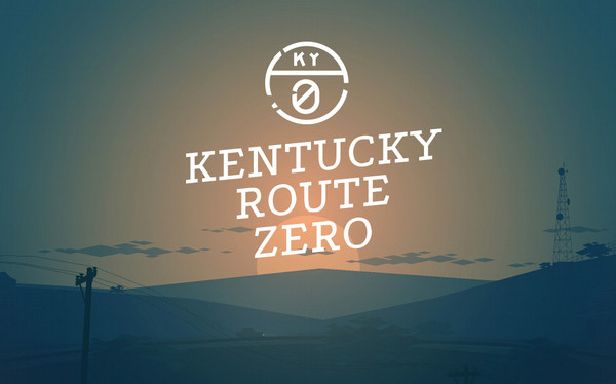
Kentucky Route Zero
I have many questions after completing Kentucky Route Zero. Why did it take seven years for all five acts to be released? Why were resources spent on interludes that comprise 25% of the running time even in the face of the obviously slipping schedule? If magical realism makes a setting’s rules completely arbitrary, how can drama be maintained? And most importantly, what was the point of any of this? The game is deeply submersed in its cultural and artistic influences, so I’m absolutely certain I’m missing a decent portion of symbolic and intertextual meaning. But the subject matter is so inconsistent and scattershot that it’s obvious even to a layperson that there’s a lot less significance here than it wants us to believe.
What’s most frustrating is that when KRZ strikes a chord, it does so magnificently. The first act presents several eerie highlights, the second captivates a little more by doubling down on entertaining weirdness, and the series peaks in act III with its most immediately significant and effective narrative segment. From there, its gaze burrows so far into its navel that its genre can best be described as stream of consciousness slice of life, which it only emerges from in time for a powerful finale that left me wishing I cared about any of the characters. More generally, the audio is consistently atmospheric and appropriate, and the visuals are silently beautiful and terrifying when their compositions don’t render them merely confusing.
Perhaps that’s too much traditional criticism for something so devoutly non-traditional. Regardless of its faults, there’s nothing else like KRZ, which is why even though I don’t recommend it, I don’t necessarily want to dissuade anyone from trying it. Its introspective approach to dialogue trees, vacillating perspectives, and curiously interconnected setting may all just be acquired tastes that I don’t have. Most players will agree that the experience could be expedited, however; every act except the third moves at a crawl, either for contrived or non-existent reasons. I actually enjoyed the interludes the most as a result, since they continued the experimentally interactive Rorschach test while taking less than half an hour to get to the bloody point.
Note: these scores were changed from 6.5 (Act II), 5.0 (Act V), and 5.0 (Overall), to reflect the author’s changing opinion.
-
Act I - 5.5/10
5.5/10
-
Act II - 6/10
6/10
-
Act III - 7/10
7/10
-
Act IV - 4.5/10
4.5/10
-
Act V - 4.5/10
4.5/10